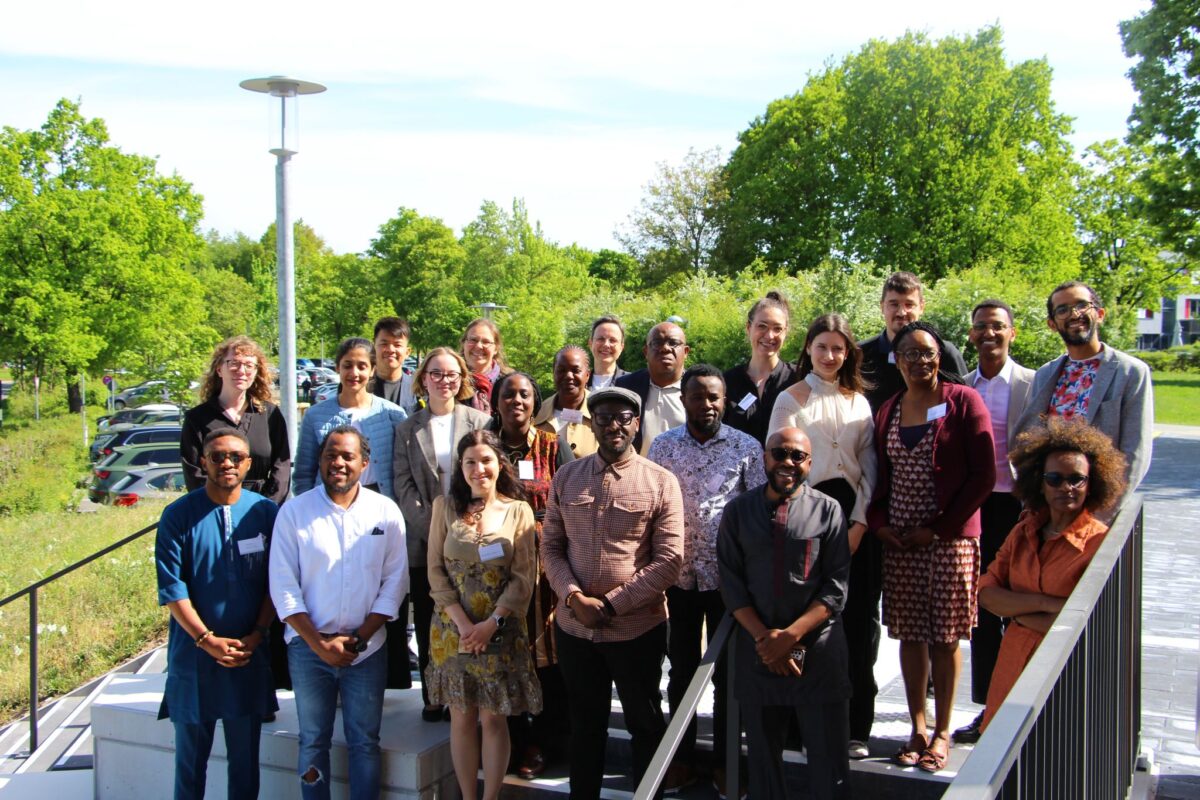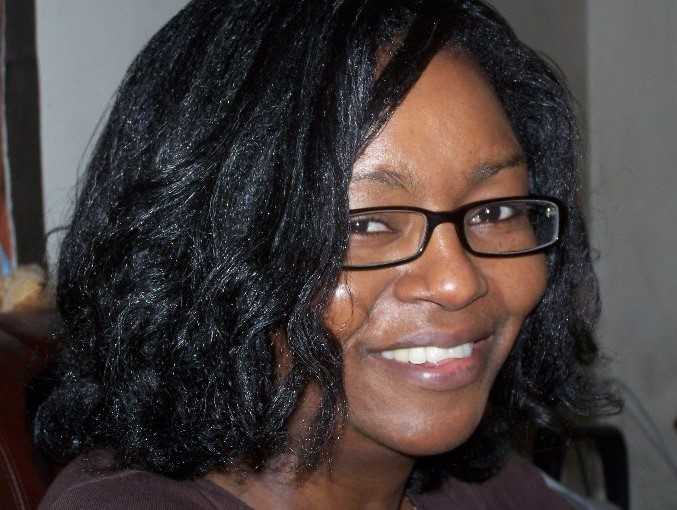Introduction
It is not every day that a conference opens with a work of art, but the African Legal Studies conference in Bayreuth chose to do precisely that. Marking the fifth anniversary of the Chair of African Legal Studies, the gathering drew scholars from across Africa other parts of the world to explore one unifying, yet profoundly complex theme: “Law and Belonging as a relational Praxis.”
The very first evening set the tone. Delegates watched “This Is Not a Burial, It is a Resurrection”, a visually arresting and emotionally charged film about land, identity, and resistance. Its raw depiction of the tensions between indigenous African customary law and state law resonated powerfully with the conference’s central questions: Who is seen? Who belongs? And what happens when the law’s promises fall short of lived realities?
In this charged atmosphere, right after the opening session, interviewer Merlin Mitschker (PhD Candidate at the Chair of African Legal Studies) sat down with Professor Fareda Banda (SOAS University of London) and Professor Lea Mwambene (University of the Western Cape). What followed was an animated conversation about legal scholarship, cultural context, transformative equality, and the unexpected value of intergenerational learning.
Merlin Mitschker
We are recording this for the African Legal Studies blog. Are you familiar with it? It is one of our outreach platforms run by the Chair of African Legal Studies. Every Friday, we publish a post on topics like human rights, environmental law, and regional integration. Would you like to introduce yourselves to our readers? Who are you and what do you do?
Lea Mwambene
I am Lea Mwambene from the University of the Western Cape. I am a lecturer there and Deputy Dean for Teaching and Learning, coordinating the undergraduate programme. I am here for the conference and to join the celebration of the Chair’s fifth anniversary. However, it is not just an academic gathering for me. It is also a space to reconnect with colleagues, exchange fresh ideas, and be inspired by new research coming from across the continent.
Prof. Lea Mwambene: “You cannot define belonging with fixed borders. It depends on context and perception.”
Merlin Mitschker
What about you, Fareda?
Fareda Banda
I am Fareda Banda from SOAS University of London. Like Lea, I am here to celebrate the Chair`s fifth anniversary. Lea and I actually met back in 2010 when she was finishing her PhD, so it is wonderful to see her again.
It has also been fantastic to meet new scholars. I am impressed by the level of critical engagement. I feel I have learned so much and have been genuinely refreshed. These kinds of exchanges remind me why academic spaces matter – they give you the chance to challenge your assumptions, hear perspectives you might never have considered, and return home with your intellectual batteries fully charged.
Merlin Mitschker
What about you, Lea? Has the conference been beneficial for you so far?
Lea Mwambene
Absolutely. It has made me think even more critically about how legal reforms interact with traditional practices on the ground – and where tensions, but also creative solutions, can emerge. The conference theme has opened new angles for my research on African customary law and human rights.
Fareda Banda
Yes. It is a strong theme. At first glance, you think, “Oh… interesting.” However, we have had discussions on belonging in environmental law, in migration, in LGBTIQ rights, asking: how does the law decide who is seen, who is unseen, and who belongs?
What struck me is how the conference also explored that even when the law “sees” you, it does not necessarily give you what it promises. We have been grappling with how to make real what the law claims to guarantee, which is, to me, at the heart of transformative equality. That is where I feel the conversation is heading.
Lea Mwambene
And yesterday’s film on Mantoa was fascinating and thought-provoking. It showed the continuous tensions between indigenous African customary law and state law, how communities resist top-down change, and how they claim their space. It tied in beautifully with today’s debates about clashes of legal systems and different forms of belonging.
Fareda Banda
Yes, and what is remarkable is that the panels have connected thematically. Often at conferences, people ignore the theme if it doesn’t fit their paper, but here, everyone engaged.
One of the most powerful moments for me was a paper by Philip Bogensperger, a young Bayreuth scholar, whose positionality statement on belonging was both moving and humble, acknowledging his relative privilege. It set the tone for a more honest, self-reflective academic dialogue, which is rare but incredibly valuable.
Lea Mwambene
I was also struck by Patricia`s point that space is irrational. You cannot define belonging with fixed borders. It depends on context and perception.
Prof. Fareda Banda: “If you are dead, why does it matter where you are buried?”
Fareda Banda
Exactly. And her use of legal geographies, drawing on Sarah Keenan’s work, was impressive. Lea and I were joking that in our day, we did not have this theoretical depth in our scholarship!
Lea Mwambene
We are learning.
Fareda Banda
Yes, and it is not just intergenerational justice we are talking about here, but intergenerational learning. That mutual exchange keeps the discipline alive and evolving.
Lea Mwambene
Absolutely.
Merlin Mitschker
So, does the conference have not only international and intercultural exchange, but also intergenerational exchange?
Fareda Banda
Absolutely. That came up in Josephine’s presentation on intergenerational climate justice. She discussed the European Court case of the so-called “Swiss grannies”. Older women are bringing an intergenerational case. It beautifully linked present obligations to future generations, but also obligations to the older generation. Her paper captured the whole life cycle without ever having to say so explicitly.
Lea Mwambene
And Ange’s paper on Ubuntu in mineral and environmental governance was a highlight for me. Too often, we focus only on economic outcomes from resources, ignoring the communities displaced and disrupted. Her work made a robust case for centering human dignity in resource governance debates.
Fareda Banda
Absolutely. The Botswana burial case was another powerful example showing that where you are buried, even after death, is culturally significant. It reminded me of the famous Kenyan Otieno case.
Your paper is also connected to this Lea. Human rights need a cultural context. Technically, you might ask, “If you are dead, why does it matter where you are buried?” But it matters deeply. And if you are doing law reform, it is not enough to simply change the rules. You must take people with you. That is an integral part of transformative equality.
Lea. Why don’t you tell us more about your paper, instead of me telling it for you?
Lea Mwambene
It is about precisely that. The belonging theme made me think beyond my usual framework -looking at how changes in law affect rights linked to specific customs, and how these changes play out socially and culturally, not just legally.
Merlin Mitschker
Legal education should place more emphasis on the underlying social and cultural aspects of the law rather than just its technical application. That is something the civilian legal tradition could learn from the African context.
Fareda Banda
Exactly. That is why what we teach now must have social relevance. If legal scholars fail to bridge that gap, we risk producing lawyers who can recite statutes but cannot see the human realities those statutes are meant to serve.
Merlin Mitschker
Thank you very much for your time.



2 replies on “Intergenerational Learning and Belonging in African Legal Studies: A conversation with Prof. Fareda Banda and Prof. Lea Mwambene”
Thank you Merlin. So enjoyed our chat with Prof Lea.
This discussion beautifully captures the dynamic interplay between law and belonging, highlighting how African customary law clashes with state law. The emphasis on intergenerational learning and cultural context is insightful, reminding us that legal reforms must be grounded in lived realities for transformative equality to truly take hold.